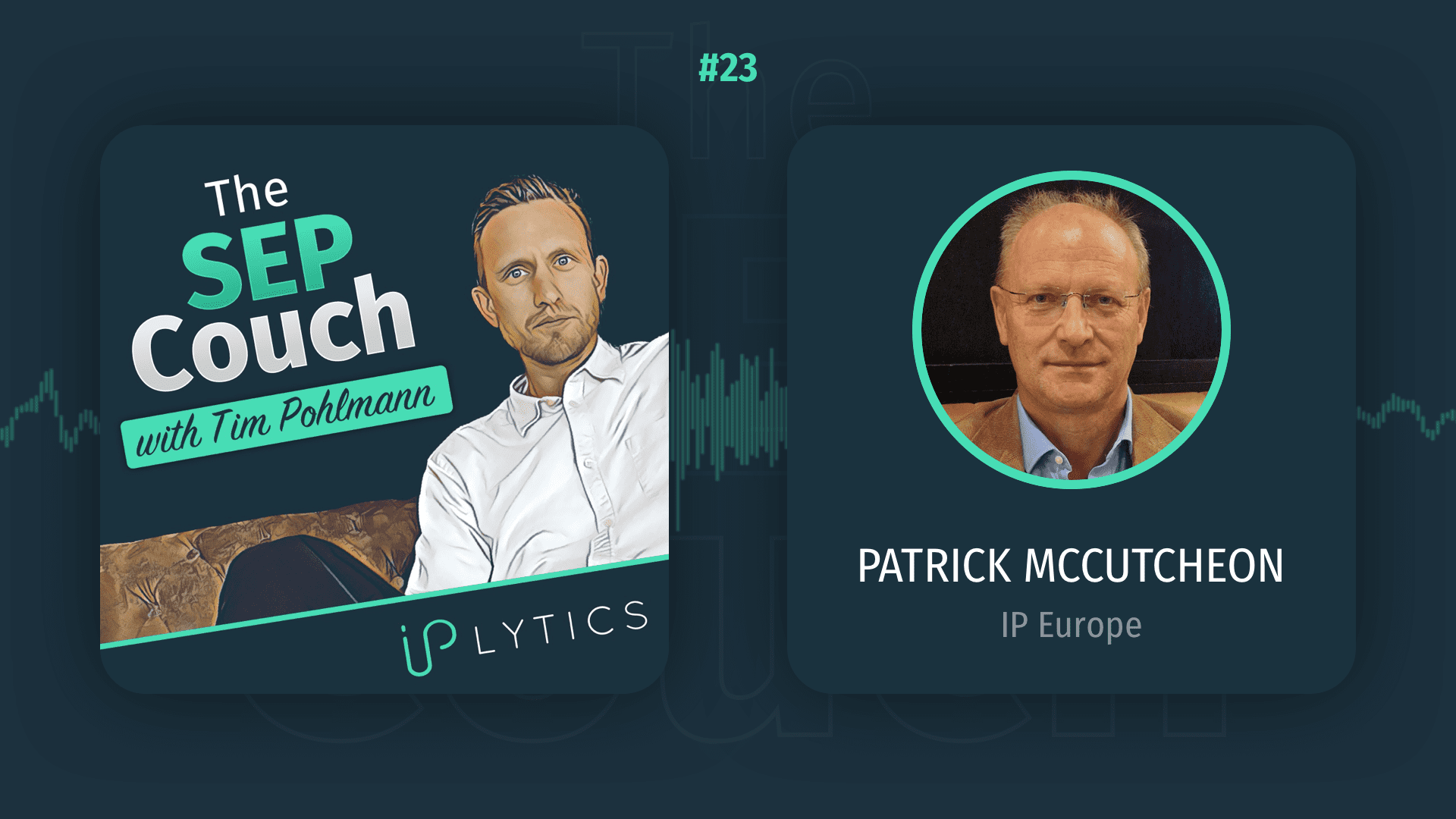IP Europe’s Take on FRAND – Episode 23

Watch on YouTube
Guest:
- Patrick McCutcheon, Managing Director of IP Europe
Patrick McCutcheon has been the Managing Director of IP Europe since July 2022. He previously worked for 17 years at the European Commission as a policy advisor, later senior expert on IP and competition law, in the European Commission’s Research and Innovation. In these positions, he worked on a review of policies impacting incentives to invest in R&D and engage in open innovation including participation in standards and licensing of technology. He managed together with the Commission’s JRC a project monitoring and analyzing industrial R&D investments which included the annual EU industrial R&D scoreboard. He was part of an intra-departmental team developing a policy framework on the licensing of SEPs and commissioned studies and expert groups on fostering patent aggregation and the impact of mergers on innovation in Pharma. His background is in business administration, he holds an MBA from Edinburgh Business School, and law he holds an LLB and LLM from the University of London with a specialization in IP and competition law.
Patrick explains in the podcast that IP Europe brings together innovative European organizations that recognize the value of intellectual property in driving growth and job creation. Its mission is to promote policies that support a collaborative European innovation ecosystem to ensure that all innovators can receive a fair return on their investments in developing new solutions, thereby encouraging further research and development.
In the podcast interview, Patrick explains that the question of essentiality was in most SEP licensing discussions, not the main issue. Most of the debate is about price and the value the technology adds to the end product. Claim charting each and every of the 70,000 declared patent families would add unreasonable costs to the licensing program. Even if AI tools help with that the question remains: How much do we know about the value of patented technology? Patrick further explains that a claim chart is also only one opinion at one particular point in time about a certain implementation of the standard. Patrick says it’s still not clear if more claim charts and increased transparency about essentiality would after all facilitate licensing. Patents are probabilistic regarding if they are valid, essential, and of value.
Patrick also states that people should not forget that in most cases agreement is reached. This is because there is an agreement in the industry about what a reasonable price is. Currently, about 90% of the SEP licensing revenue is about cellular technology. But of course, SEPs are also relevant to other standards e.g. Wi-Fi or video codec. In general, Patrick also feels that litigation for most of these technologies and SEPs has not really been increasing. The challenge now is licensing technologies in new verticals like IoT but even here comparable licenses in other industries can be used as a benchmark to start negotiations.
